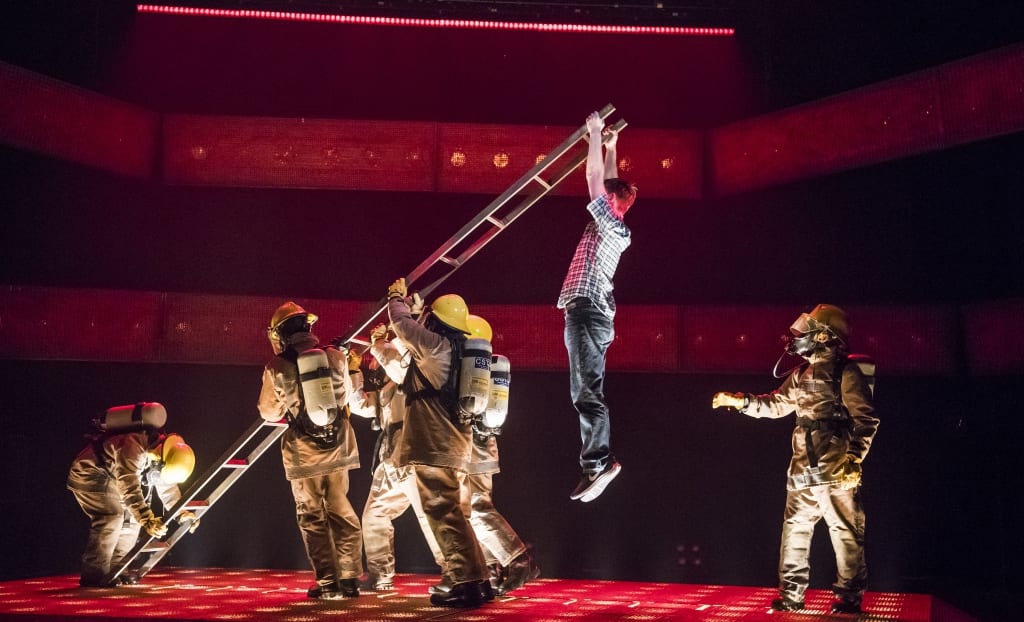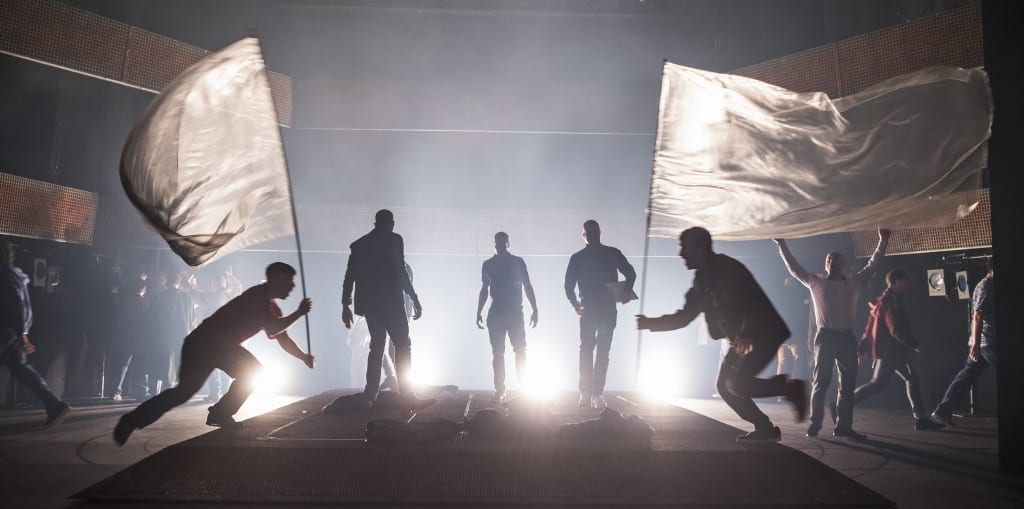A refreshing new play, Fatherland explores difficult relationship issues between fathers and sons, doing so through the creative use of humour, music, and dance. The main characters, who play the co-creators Scott Graham, Karl Hyde, and Simon Stephens, create a portrait of what it means to live in modern England.
Three men—Scott, Karl, and Simon—return to their small hometowns hoping to answer questions of fatherhood and father-son relationships. They ask their friends and other locals questions such as ‘What is your first memory of your father?’ and ‘What did your father do for a living?’ Seemingly innocent questions force their interviewees and the audience to truly think about these questions. While some characters have happy memories, others only remember their fathers sitting on the couch reading the newspaper. Though initially intended to be a commentary on the people whom they interview, as the show progresses, Scott, Karl, and Simon are also forced to look introspectively.

In addition to the simple questions which are asked, the show raises questions about masculinity. Several forms of masculinity are examined throughout the production. In particular, the character of Daniel, expertly played by David Judge, raises the issue of saying ‘I love you’. In an emotional scene, the cast sings about the inability to say what they are thinking, using song as their form of expression.
The all-male cast creates a strong dynamic that is present throughout the show. Interspersed with musical interludes, Fatherland tells its story through conversation as well as through song. The array of vocal ranges, as well as the creative choreography, is unlike anything I have seen on stage. The varied voices allow the individual stories to be heard, while also allowing the production to remain a cohesive story.
The set of Fatherland is minimal, with a raised platform and hollow metal doorways. Though there are limited props, the cast makes use of the entire stage. During some of the musical interludes, the platform rotated, creating a continued sense of change and progression. This suits the story, which tells the progression from the cast’s experiences with their father to how they wish to act as a father.
An original show, Fatherland and its cast, brought me into their world. As the interviewers asked their questions, I thought about my father and my experiences. During every scene, and with every question asked, I wanted to know more about the experiences of these men, whom I had never met nor will ever meet. Showing that relationships are difficult and all are different, Fatherland made me laugh and made me think, thus making it an amazing show which is not to be missed.

